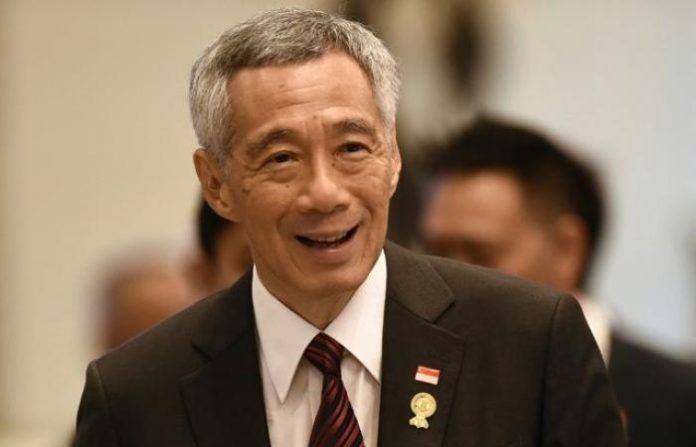Singapore, a city-state known for its stability and economic prowess, is bidding farewell to a political dynasty as Prime Minister Lee Hsien Loong steps down after two decades at the helm. This transition marks a significant moment in the nation’s history, signaling the end of an era dominated by the Lee family’s leadership.
Since gaining independence in 1965, Singapore has been led by just three Prime Ministers, all from the ruling People’s Action Party (PAP). Lee Hsien Loong follows in the footsteps of his father, Lee Kuan Yew, often hailed as the architect of modern Singapore. Lee Kuan Yew’s legacy looms large over the city-state, having steered it through its formative years for a quarter-century. Now, as his son prepares to pass on the baton, Singaporeans are contemplating a future beyond the familiar Lee surname.
The transition from Lee Hsien Loong to Lawrence Wong, the incoming Prime Minister, symbolizes an evolution in Singaporean politics. While Lee Hsien Loong will retain a senior role within the government, his stepping down signifies a shift away from the dominance of the Lee family dynasty. This move reflects a broader desire for a more diverse and inclusive political landscape in Singapore.
In his final address as Prime Minister, Lee Hsien Loong expressed gratitude to Singaporeans for their support throughout his tenure. He emphasized his efforts to lead inclusively, striving to bring the nation forward collectively rather than advancing alone. His departure marks the end of an era characterized by the distinctive leadership style of the Lee family.
Lee Hsien Loong’s leadership was not without its challenges and controversies. Critics often accused the family of nepotism, citing the succession of Lees in top political positions. However, over the past two decades, Lee Hsien Loong has left an indelible mark on Singapore’s economic landscape. Under his stewardship, the nation experienced remarkable growth and diversification, solidifying its position as a global financial hub and tourist destination. Despite economic successes, challenges such as rising inequality and social discontent emerged, prompting calls for a reevaluation of government policies.
Internationally, Lee Hsien Loong adeptly navigated Singapore’s relationships with major powers like the United States and China, balancing between competing interests in the region. His administration also made strides in social issues, such as the repeal of a contentious anti-gay law, albeit amid ongoing restrictions on freedom of speech.
However, criticisms of Lee Hsien Loong’s tenure persist. His government’s policies on immigration, aimed at addressing labor shortages, sparked public dissatisfaction and exacerbated social tensions. Growing concerns over racism and bigotry highlight unresolved societal issues that have intensified during periods of crisis, such as the COVID-19 pandemic.
Moreover, a highly publicized family feud over the legacy of Lee Kuan Yew underscored internal divisions within the Lee family and raised questions about the intersection of personal and political interests. The saga, which played out in the public eye, revealed rifts within Singapore’s most prominent family and fueled debates about the concentration of power.
As Singapore transitions beyond the Lee era, the incoming leadership faces formidable challenges. Addressing socioeconomic inequalities, fostering social cohesion, and ensuring sustainable development will require innovative policies and inclusive governance. The departure of Lee Hsien Loong marks not only the end of a political dynasty but also the beginning of a new chapter in Singapore’s journey towards a more resilient and inclusive future.


